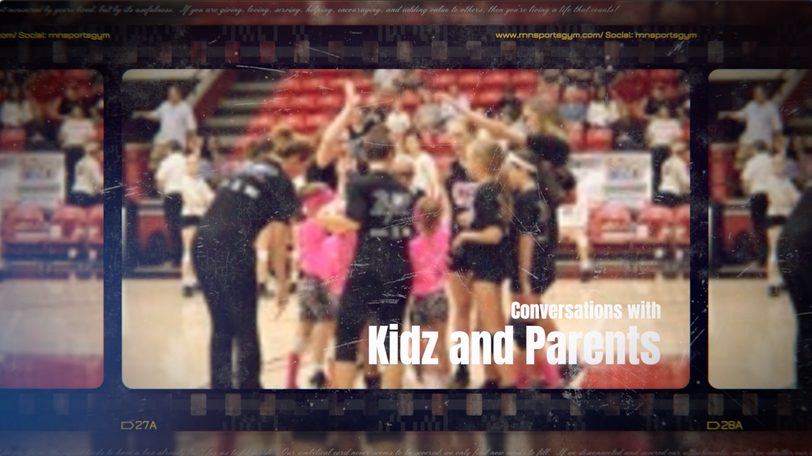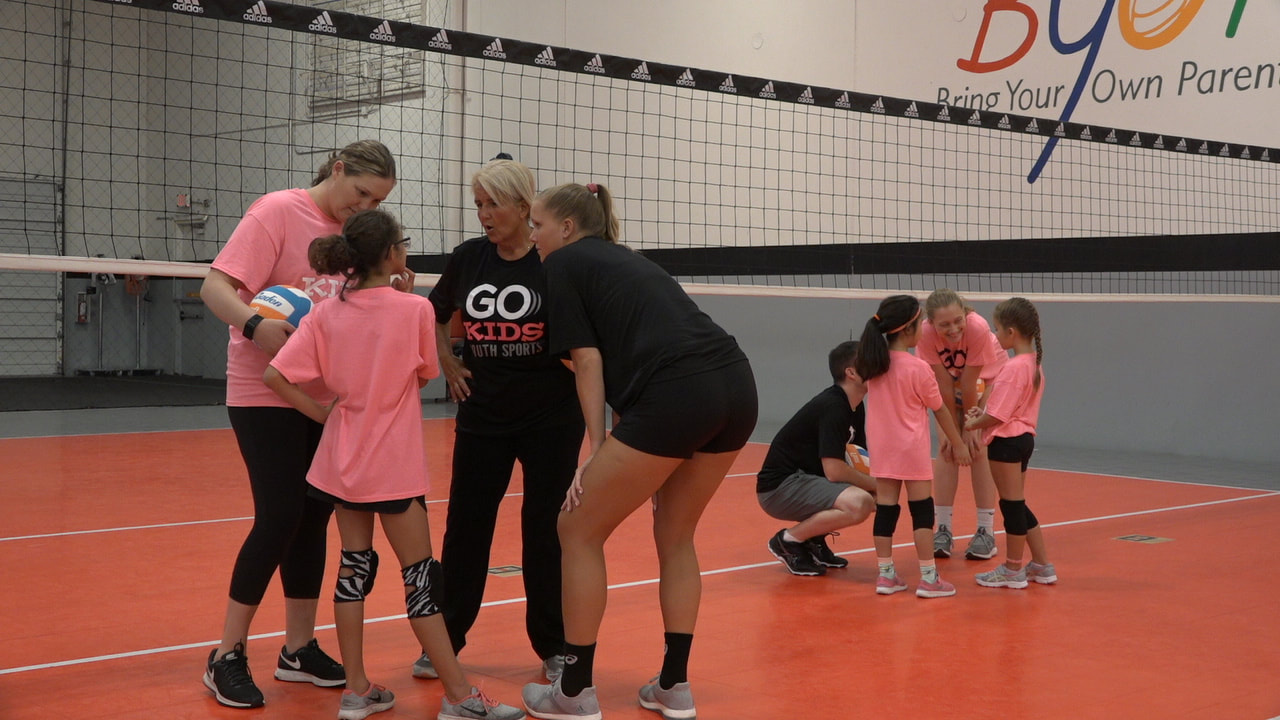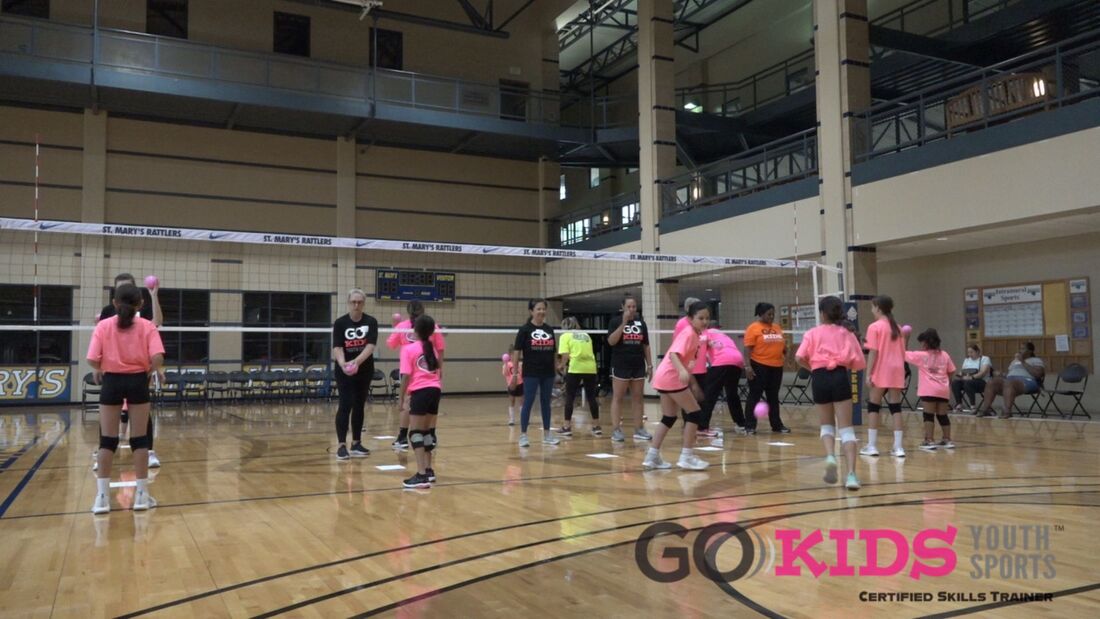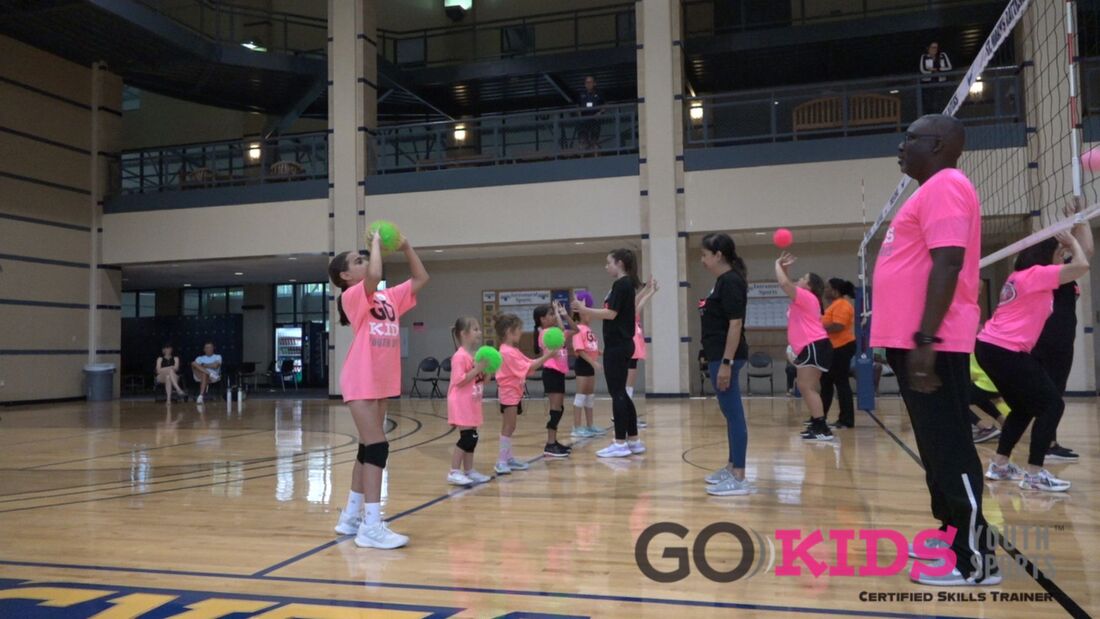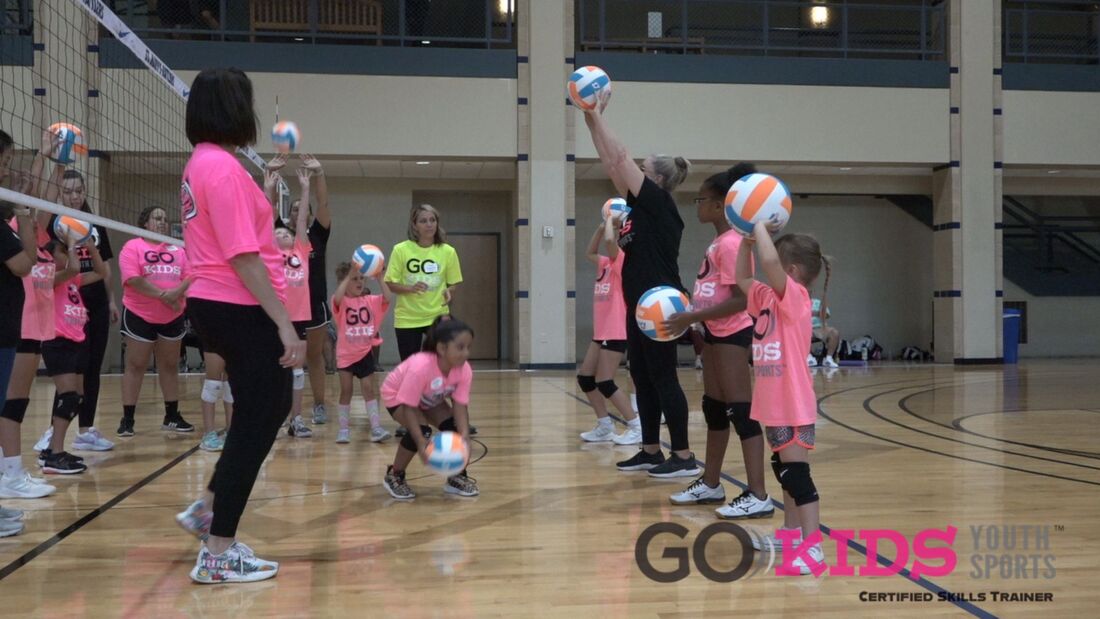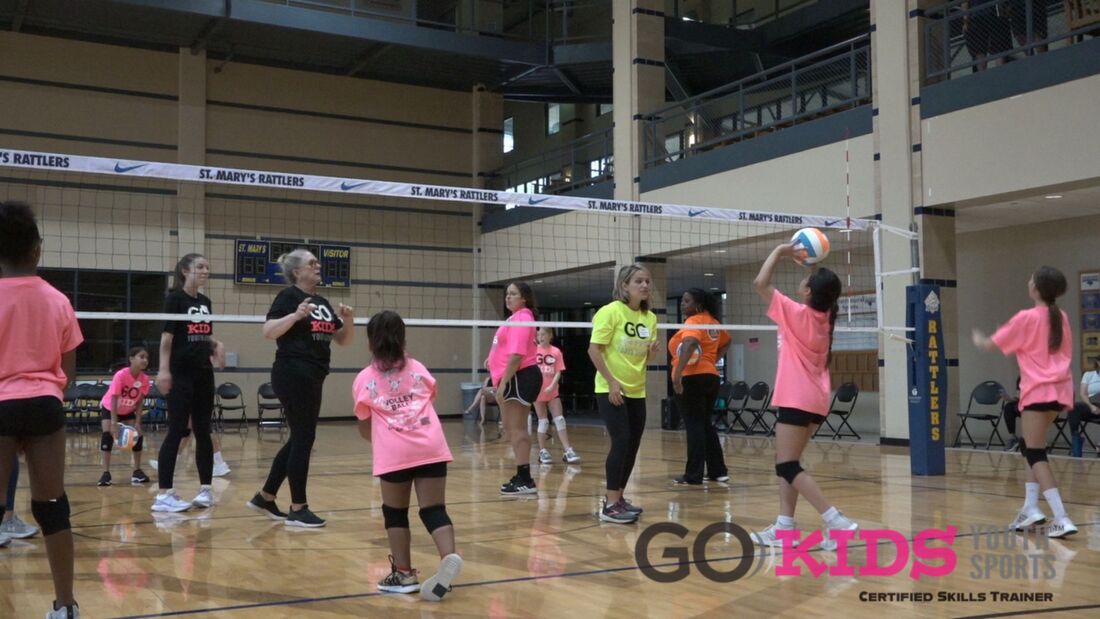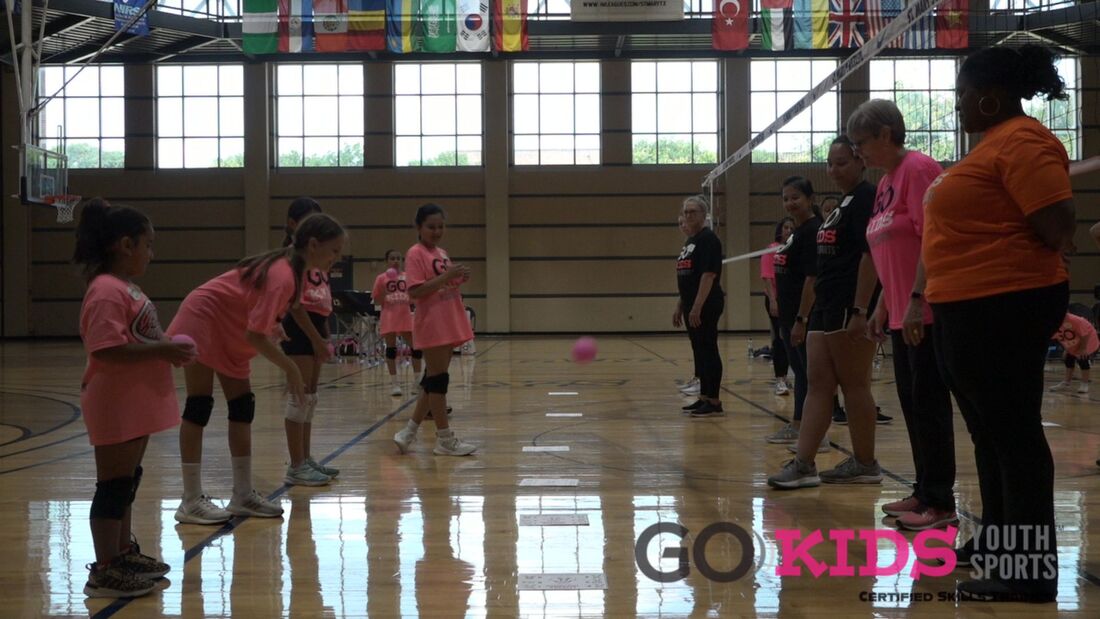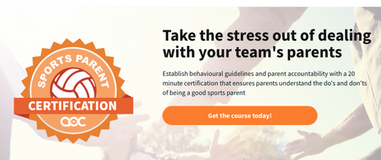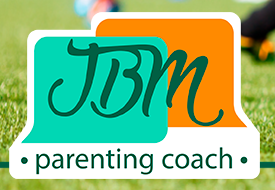Unlock the potential of your young athletes!
We're dedicated to fostering positive experiences in youth sports where every player can thrive, grow, and succeed. Join us in creating a supportive environment where teamwork, respect, and joy flourish on and off the court!" ©brvc, LLC 2024
Parents understanding their role in youth sports and how their behavior can impact their child and the entire team.
Building Positive Team Dynamics – A Guide for Sports Parents
As a parent, your support and involvement in your child's sports activities are invaluable. However, it's essential to recognize the significant impact your behavior can have on your child and their teammates. Your actions and words can foster a positive team environment or undermine the spirit of camaraderie and mutual respect.
1. Lead by Example
Your behavior sets the tone for how your child interacts with team members. Show respect for coaches, officials, opposing players, and parents. Avoid negative comments, gossip, or criticism directed at other players, coaches, or officials, as this behavior can breed resentment and undermine team morale.
2. Encourage Positive Communication
Please encourage your child to communicate positively with their teammates, focusing on constructive feedback and encouragement rather than criticism. Emphasize the importance of teamwork and support for one another, both on and off the court.
3. Respect the Coaching Staff
Trust the expertise of the coaching staff and refrain from undermining their authority or decisions. If you have concerns or disagreements, address them privately and respectfully rather than openly criticizing coaches or players during games or practices.
4. Foster a Supportive Environment
Create a supportive and encouraging atmosphere for your child and their teammates. Cheer for good plays and efforts from both teams, regardless of the outcome. Celebrate successes and offer encouragement during challenging moments.
5. Focus on Development and Enjoyment
Remind your child that the primary goal of youth sports is personal development, skill-building, and enjoyment. Avoid placing undue pressure on them to win at all costs or achieve unrealistic expectations. Please encourage them to have fun and embrace sports learning opportunities.
6. Reflect on Your Behavior
Please reflect on your behavior and its impact on your child and their team. Ask yourself whether your actions align with sportsmanship, respect, and teamwork values. Be open to feedback from your child, coaches, and other parents, and continually strive to improve your approach.
By fostering a positive and supportive environment, parents play a crucial role in enhancing the overall experience for young athletes. Remember, your actions matter, and by demonstrating respect, encouragement, and sportsmanship, you can contribute to the development of confident, resilient, and booming athletes.
Feel free to share this with other parents to help promote positive behavior and
teamwork within your sports community.
As a parent, your support and involvement in your child's sports activities are invaluable. However, it's essential to recognize the significant impact your behavior can have on your child and their teammates. Your actions and words can foster a positive team environment or undermine the spirit of camaraderie and mutual respect.
1. Lead by Example
Your behavior sets the tone for how your child interacts with team members. Show respect for coaches, officials, opposing players, and parents. Avoid negative comments, gossip, or criticism directed at other players, coaches, or officials, as this behavior can breed resentment and undermine team morale.
2. Encourage Positive Communication
Please encourage your child to communicate positively with their teammates, focusing on constructive feedback and encouragement rather than criticism. Emphasize the importance of teamwork and support for one another, both on and off the court.
3. Respect the Coaching Staff
Trust the expertise of the coaching staff and refrain from undermining their authority or decisions. If you have concerns or disagreements, address them privately and respectfully rather than openly criticizing coaches or players during games or practices.
4. Foster a Supportive Environment
Create a supportive and encouraging atmosphere for your child and their teammates. Cheer for good plays and efforts from both teams, regardless of the outcome. Celebrate successes and offer encouragement during challenging moments.
5. Focus on Development and Enjoyment
Remind your child that the primary goal of youth sports is personal development, skill-building, and enjoyment. Avoid placing undue pressure on them to win at all costs or achieve unrealistic expectations. Please encourage them to have fun and embrace sports learning opportunities.
6. Reflect on Your Behavior
Please reflect on your behavior and its impact on your child and their team. Ask yourself whether your actions align with sportsmanship, respect, and teamwork values. Be open to feedback from your child, coaches, and other parents, and continually strive to improve your approach.
By fostering a positive and supportive environment, parents play a crucial role in enhancing the overall experience for young athletes. Remember, your actions matter, and by demonstrating respect, encouragement, and sportsmanship, you can contribute to the development of confident, resilient, and booming athletes.
Feel free to share this with other parents to help promote positive behavior and
teamwork within your sports community.
Why Kids Should Play Sports?
5 Reasons Why Your Child Should Be Playing SportsThe National Alliance for Youth Sports believes that participation in sports and activities develops important character traits and lifelong values in children which can create a positive impact in their lives. Youth Sports programs at your installation seek to make the sports experience for all children safe, fun and healthy. Programs promote the value and importance of sports and physical activities in the emotional, physical, social, and mental development of children. Here are five reasons why you should sign your child up for youth sports today.
|
Teach Your Child to Love a Sport
It didn't take long for my son to find his bliss. At 2, Eric loved taking swimming classes. By 3, when I gave him the choice of going to the pool or playing at the park the water always won. By his fourth birthday he could swim basic freestyle and rudimentary butterfly. Eric is 8 now and he's still at it -- the first one in the pool at the start of team practice and the last one out at the end. Not only does swimming bring him joy and keep him fit, but his teammates are also his best buds, and he's learned how to win (and lose) with dignity.
|
Fitness for Kids Who Don't Like Sports - KidsHealth
|
Why Kids Need to be KIDS!
Playing one sport year-round isn't smart, even for kids who want to go Pro
It’s summertime. That means long, hot days, no school — and summer camps.
Lots of kids spend at least some of the summer at camps. There are overnight camps, theater camps and, of course, sports camps. Some kids spend the whole year playing one sport, such as soccer, baseball or basketball. And what do they do during the summer? They go to a camp and keep playing that sport. So what’s wrong with that? |
Crazed youth sports parents: You've gotta ease up!In it, best-selling author Daniel Pink argues that America has a problem with youth sports, and that parents are the problem. And not just the psycho ones -- all of us.
While he argues his case to the extreme, his point is worth considering: Standing on the sidelines might make you feel like the world's best parent, but is it really best for your kid? |
Why families stretch their budgets for high-priced youth sportsMost American families (63%) spend anywhere from $100 to $499 per child each month on youth sports, TD Ameritrade found. Another 18% fork over $500 to $999 monthly. Roughly one in 10 (11%) spend $1,000 to $1,999. On the high end, 8% said they spend $2,000 per month or more, or $24,000-plus per year.
|
Additional Resources that will help you better understand
Why Parents need to be engaged in the process!
How about your parents receiving a Sports Parent Certification
Dr. Terry Liskevych
Sports Parent Certification
|
Want your parents to learn something every day from JBM RSS feed?
Follow JBM, 21 years sports mom and life coach
As a sports parent who is trying to give your child a positive youth sports experience, are you running into any of these problems?
|

